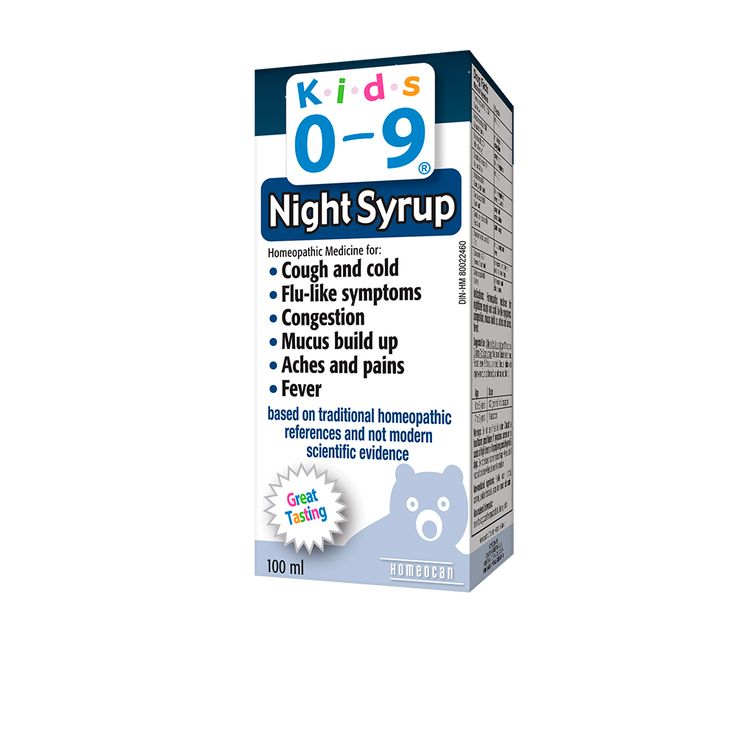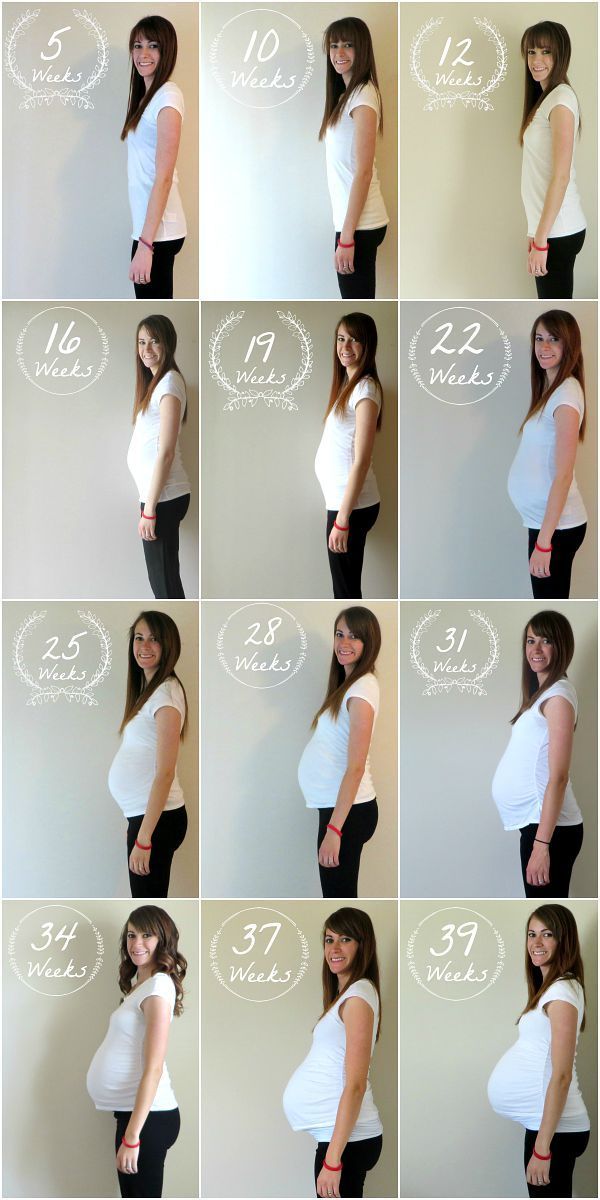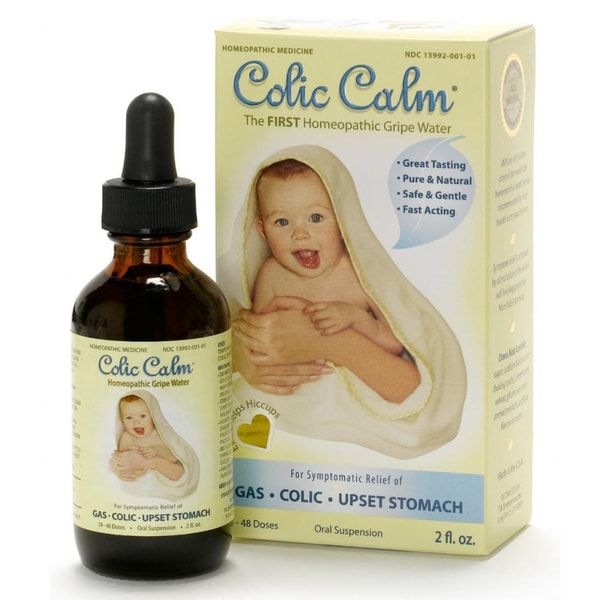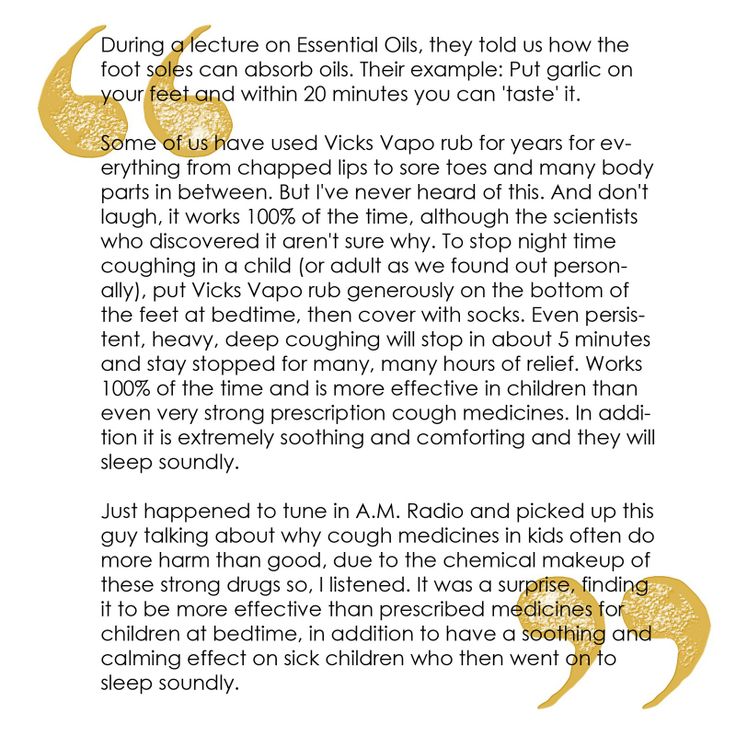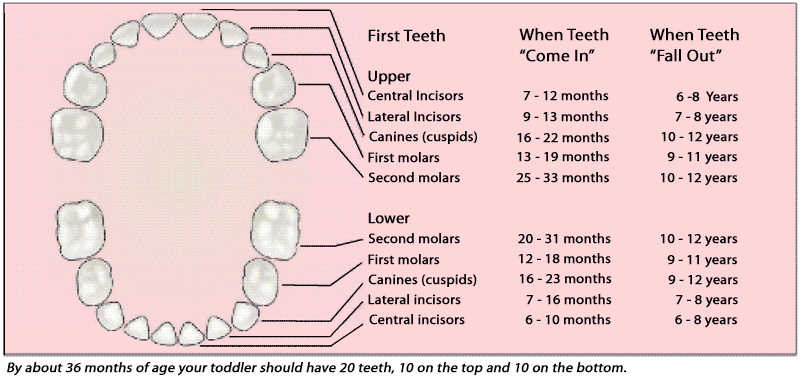How to ease night cough child
9 Cough Remedies to Stop Your Child Coughing at Night
If your child’s constant coughing is keeping them (and you) up at night, try some of these home and pharmacist-approved cough remedies that could help them on the road to recovery.With cold and flu season now in full swing, the chances are, your little one is likely to catch a cold at some point during the winter season. Coughs and colds are common in young children, so don’t be alarmed if illness strikes from one week to the next. In fact, exposure to these germs helps to develop their immune systems, and fight off infections naturally.
Of course, you need peace of mind that your child’s cough is nothing more sinister — if you’re concerned at all, pay a visit to your GP so they can give them a thorough examination. Although, more often than not, it’s purely a virus that they have to fight off.
A regular cough can last up to two weeks, which can be challenging for both them and you! But thankfully, there are some helpful treatments that can speed up the recovery process.
The first, and easiest, is to keep them hydrated, comfortable and relaxed, allowing them as much rest as possible. Making them comfortable will help to relieve any nasty, painful symptoms, and hopefully encourage them to relax. That way they’ll be able to sleep off their virus until they feel well enough to run around again!
So, to stop your child from feeling down in the dumps (and tossing and turning all night), try some of our home and pharmacist-approved cough remedies that are suitable for toddlers and young children.
These treatments are guaranteed to relieve their symptoms and stop your child from coughing all through the night.
How to Stop Your Child Coughing at Night: 9 Cough Remedies That Work
1. Keep their head elevated
If your child is over 1 year, arrange a few pillows under their back, shoulders and head so that they can sleep in a slightly upright position. This helps them to breathe more easily and in turn, helps to ease their coughing.
2. Drink lots of fluids
Keeping little ones hydrated is particularly important when your child is sick. Water helps the body fight illness and keeps airways moist and strong. Water also thins mucus secretions, which helps to drain any excess mucus that could be causing congestion and coughs. Make sure they are fully hydrated throughout the day, and give them a glass of water before bed in case they wake up in the night.
As a general rule of thumb, this is how much water a child should drink per day:
- 5 to 8 years old: 5 glasses (1 litre)
- 9 to 12 years old: 7 glasses (1.5 litres)
- 13 years old and over: 8 to 10 glasses (2 litres)
However, it’s a good idea to encourage them to drink extra fluids when they’re sick — the more water they drink, the quicker the mucus will be expelled from the body, and that means quicker recovery and less coughing!
Replacing lost electrolytes when a child is sick is a great way to enhance fluid that has been lost, especially when they've also been vomiting or have had diarrhoea. Hydralite is great for both dry and chesty coughs.
Hydralite is great for both dry and chesty coughs.
Berocca Performance Effervescent Orange 15 Tablets
Shop Now
Hydralyte Apple Blackcurrant Effervescent Electrolyte 20 Tablets
Shop Now
VOOST Multivitamin C + Minerals Effervescent Tablets 20 Pack
Shop Now
3. Use a nasal spray or saline solution
Using a nasal spray or saline drops help to clear the nose and break up any mucus. Just follow the instructions on the bottle to administer the nasal drops safely. You may want to use saline drops before bed or in the middle of the night if your toddler wakes up coughing, to help relieve their symptoms.
We love Fess Little Noses Nasal Spray for babies 0-2 years, and FESS Children's Nasal Spray for 2yrs+
Mundicare Kids Cold Defence Nasal Spray 20mL
Shop Now
Brauer Baby Saline Nasal Spray 30mL
Shop Now
FESS Children's Nasal Spray 2 Years+ 20mL
Shop Now
4.
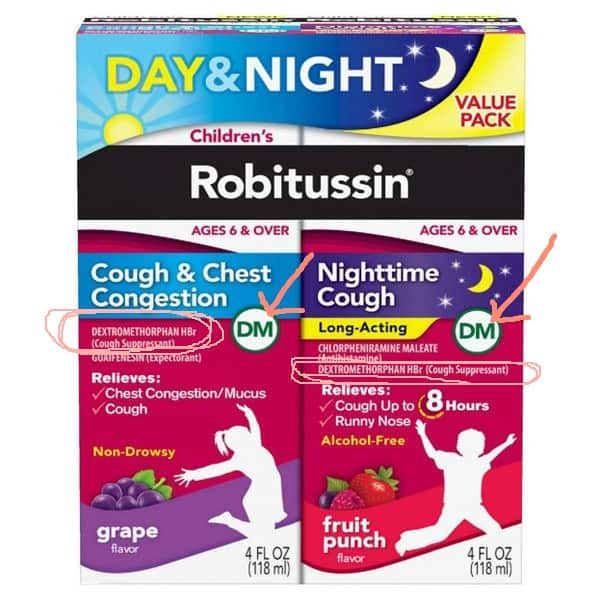 Take lozenges to soothe the throat
Take lozenges to soothe the throatConstant coughing can cause the throat to become sore and painful — coughs and colds are usually accompanied by a sore throat — so taking something to help soothe the pain will make them more relaxed come bed time, and kill off any harmful bacteria that could cause further illness or infection.
Children over 6 can take Strepsils Lozenges, which contain an effective combo of antibacterial agents to help kill the bacteria that can cause sore throats and mouth infections, whilst at the same time providing soothing relief from discomfort and pain.
Sambucol Kids Soothing Throat Pops 8 Pack
Shop Now
Vicks VapoNaturals Lemon Menthol Throat Lozenges
Shop Now
Strepsils Sore Throat Lozenges
Shop Now
When a child has a dry cough this can make their throat more susceptible to becoming dry and tickly. Lozenges are a great way to temporarily lubricate the throat to reduce this dry and tickly feeling.
5. Massage with Vicks
For children over 2, massage Vicks VapoRub Ointment Decongestant Chest Rub on their chest and throat before bedtime to reduce coughs and congestion. Infused with camphor, eucalyptus oil and menthol, this vaporising ointment works to unblock noses, relieve coughs and soothe sore muscles, aches and pains. A nightly dose should help your child sleep more restfully at night.
If your little one is really congested and finding it hard to breathe, you can also put two teaspoons of Vicks into a bowl of steaming water, then cover with a towel. Carefully place your child’s head over the bowl with a towel over their head so they can inhale the steam — this will help unblock any congestion and help them breathe easier before bed.
For babies under 2, use Vicks BabyBalsam made with a relaxing combo of rosemary, lavender and eucalyptus and extract of aloe vera.
6. Try a cough syrup
For children aged 6 and above, cough syrups like DURO-TUSS Expectorant Cough Liquid work to break down and clear excess mucus from the chest, which in turn, helps to relieve the urge to cough.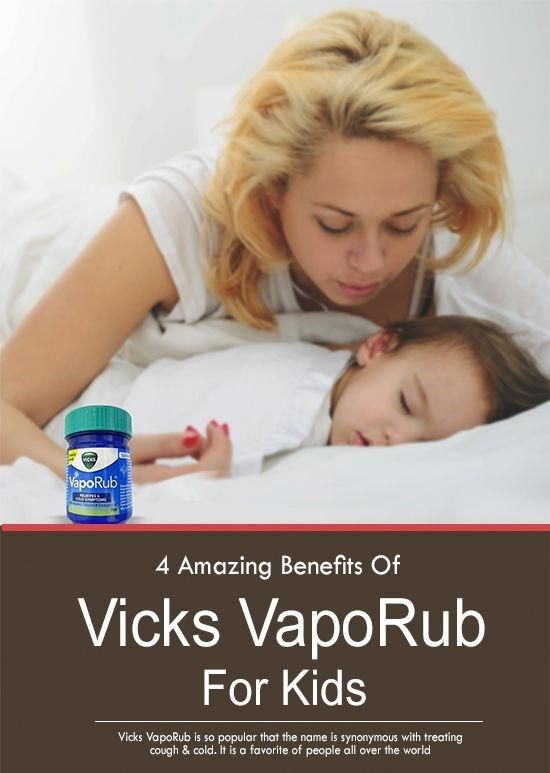 It can also cause slight drowsiness, so it may also help your child to rest through the night. The pomegranate flavour is also very kid-friendly, so it won't be hard getting little ones to swallow.
It can also cause slight drowsiness, so it may also help your child to rest through the night. The pomegranate flavour is also very kid-friendly, so it won't be hard getting little ones to swallow.
Sambucol Kids Cough Oral Liquid 120mL
Shop Now
Vicks Chesty Cough Syrup 180mL
Shop Now
Brauer Kids Manuka Honey Dry Cough 100mL
Shop Now
7. Steam up the bathroom
Run a hot shower and turn your bathroom into a steam room 15 mins before bed, and 15 mins in the morning to help loosen chest and nasal congestion. The steam helps to loosen chest and nasal congestion, making it easier for them to cough or blow it out when they have trapped mucus from a chesty cough. As an added measure you can pat their back and chest lightly using open palms (like you are burping them) to help break up congestion. This will hopefully clear away any mucus or phlegm before they go to bed, encouraging them to breathe a little easier, and hopefully sleep more soundly.
8. Use a humidifier
Use a cool-mist humidifier all night to keep your child’s airways clear and moist. Open the windows first thing in the morning to air the room, humidity in the room can cause mould to grow which can make congestion worse.
Try the Able Ultrasonic Vaporiser, it works miracles by adding more humidity to the air. The low humidity in winter can inflame and dry out the mucous membrane lining in your respiratory tract, which increases the risk of a cold, flu, and other infections like coughs. Flu germs and other viruses survive and spread more easily in dry air conditions, so boosting your indoor humidity level makes it less likely for germs to survive and transmit to those around you.
Able Ultrasonic Vaporiser
Shop Now
Vicks WarmSteam Vaporiser
Shop Now
The Able Ultrasonic Vaporiser's ultrasonic frequency creates fine water droplets that evaporate into the air as a cool fog, helping you to breathe easier and stop winter germs dead in their tracks.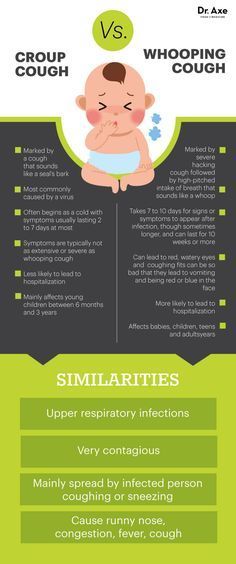
Double up with Vicks VapoSteam Double Strength. Add a few drops to your humidifier and allow the soothing vapours of eucalyptus and peppermint to penetrate nasal and throat passages, which help to gently soothe and comfort
Vicks VapoSteam Double Strength Inhalant 200mL
Shop Now
Euky Bear Sniffly Nose Inhalant 200mL
Shop Now
Able VapourMist Essential Oils 125mL
Shop Now
Be sure to keep your humidifier clean with Euky Bear Vaporiser Cleaning Tablets. Just pop one or two tablets in with your steam inhalent and it will clean at the same time.
9. Give them a teaspoon of honey
For children 1-6, a spoonful of honey will work as a natural soothing agent for sore throats. Some studies show that it also works as a natural remedy to relieve dry cough symptoms too, as it has antibacterial properties that can help fight off infections. Give them a teaspoon before bed, or infused into some warm water for added hydration.
Loved our advice on child cough remedies? We've got plenty more health advice on our Health & Wellness Edit, guaranteed to give your body a well-deserved boost. Want to know if it's safe to take someone else's antibiotics? Plus, do you know the difference between over-the-counter and practitioner-only supplements? Here's everything you need to know.
Related Posts
Healthy Christmas Treats to Keep Your Diet Goals on Track
Switch up your calories for these deliciously healthy Christmas treats, for the ultimate in guilt-free indulgence Wit...
Read More
Heartburn or Indigestion? How to Settle Your Stomach During the Festive Season
The season of excess can play havoc on our stomachs, but don’t let your holiday heartburn take control. Here’s how to...
Read More
Heat Stroke vs.
 Heat Exhaustion: How to Recognise the Signs
Heat Exhaustion: How to Recognise the Signs Spent too much time in the sun? Heat exhaustion and heat stroke are most common during summer, so it’s important to k...
Read More
Coughing (for Parents) - Nemours KidsHealth
What Are Coughs?
Coughs are one of the most common symptoms of childhood illness. A cough can sound awful, but usually isn't a sign of a serious condition. In fact, coughing is a healthy and important reflex that helps protect the airways in the throat and chest.
What Are the Different Types of Coughs?
Sometimes, though, a cough needs a doctor's care. Understanding the different types of cough can help you know when to handle them at home and when to call your doctor.
The most common types of coughs are:
- "barky" cough
- whooping cough
- cough with wheezing
- nighttime cough
- daytime cough
- cough with a fever
- cough with vomiting
- persistent cough
"Barky" Cough
Barky coughs are usually caused by swelling in the upper airway. Most of the time, a barky cough comes from croup, a swelling of the larynx (voice box) and trachea (windpipe). Younger children have smaller airways that, if swollen, can make it hard to breathe. Kids younger than 3 are most at risk for croup because their airways are so narrow.
Most of the time, a barky cough comes from croup, a swelling of the larynx (voice box) and trachea (windpipe). Younger children have smaller airways that, if swollen, can make it hard to breathe. Kids younger than 3 are most at risk for croup because their airways are so narrow.
A cough from croup can start suddenly, often in the middle of the night. Most kids with croup will also have stridor, which is a noisy, harsh breathing that happens when the child inhales (breathes in).
Whooping Cough
Whooping cough (pertussis) is an infection of the airways caused by the
bacteriaBordetella pertussis. Kids with pertussis will have spells of back-to-back coughs without breathing in between. At the end of the coughing, they'll take a deep breath in that makes a "whooping" sound. Other symptoms are a runny nose, sneezing, mild cough, and a low-grade fever.
Whooping cough can happen at any age, but is most severe in infants under 1 year old who did not get the pertussis vaccine, which is part of the DTaP vaccine (diphtheria, tetanus, acellular pertussis).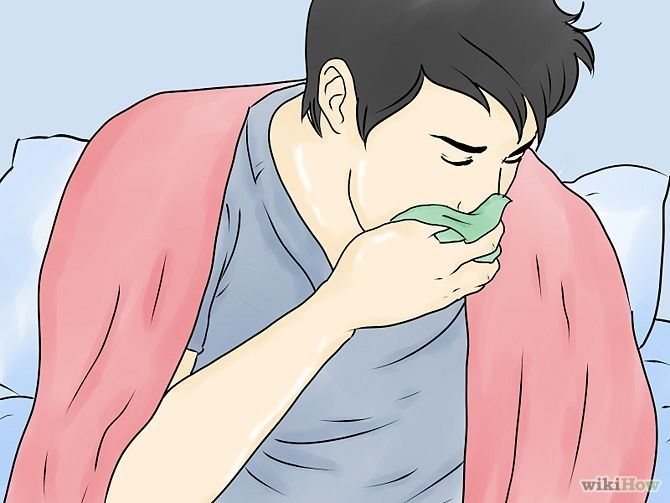 It's very contagious, so all kids should get the pertussis shot at 2 months, 4 months, 6 months, 15 months, and 4–6 years of age.
It's very contagious, so all kids should get the pertussis shot at 2 months, 4 months, 6 months, 15 months, and 4–6 years of age.
Cough With Wheezing
If your child makes a wheezing (whistling) sound when breathing out (exhaling), this could mean that the lower airways in the lungs are swollen. This can happen with asthma or with the viral infection bronchiolitis. Wheezing also can happen if the lower airway is blocked by a foreign object. A child who starts to cough after inhaling something such as food or a small toy should see a doctor.
Nighttime Cough
Lots of coughs get worse at night. When your child has a cold, the mucus from the nose and sinuses can drain down the throat and trigger a cough during sleep. This is only a problem if the cough won't let your child sleep.
Asthma also can trigger nighttime coughs because the airways tend to be more sensitive and irritable at night.
Daytime Cough
Cold air or activity can make coughs worse during the daytime. Try to make sure that nothing in your house — like air freshener, pets, or smoke (especially tobacco smoke) — is making your child cough.
Try to make sure that nothing in your house — like air freshener, pets, or smoke (especially tobacco smoke) — is making your child cough.
Cough With a Fever
A child who has a cough, mild fever, and runny nose probably has a common cold. But coughs with a fever of 102°F (39°C) or higher can sometimes be due to pneumonia, especially if a child is weak and breathing fast. In this case, call your doctor immediately.
Cough With Vomiting
Kids often cough so much that it triggers their gag reflex, making them throw up. Also, a child who has a cough with a cold or an asthma flare-up might vomit if lots of mucus drains into the stomach and causes nausea. Usually, this is not cause for alarm unless the vomiting doesn't stop.
Persistent Cough
Coughs caused by colds due to viruses can last weeks, especially if a child has one cold right after another. Asthma, allergies, or a chronic infection in the sinuses or airways also might cause lasting coughs. If your child still has a cough after 3 weeks, call your doctor.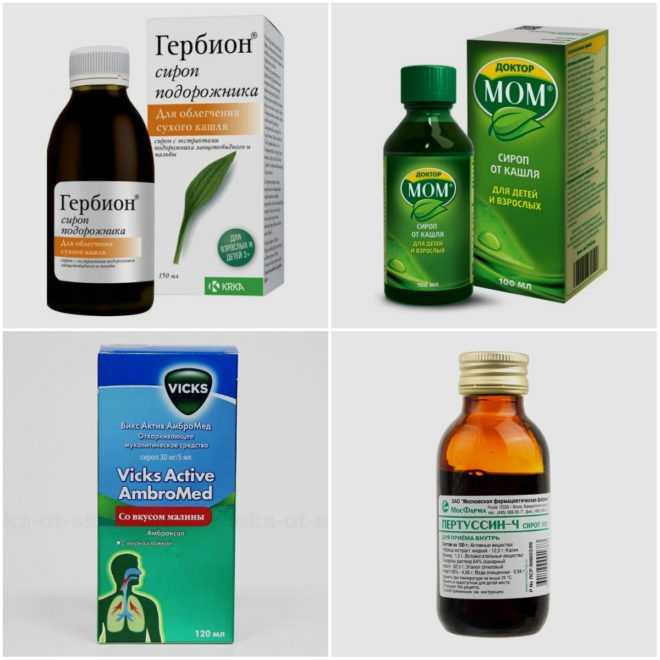
How Are Types of Coughs Diagnosed?
If you're concerned about your child's cough, call your doctor. Depending on the type of cough, other symptoms, and how long it's lasting, the doctor might want to see your child.
Many health care providers now offer telehealth visits, which can save parents a trip to the office (especially for a nighttime cough). "Video chatting" lets doctors see and hear a child cough, and often this is enough to make a diagnosis or rule out a serious problem. Hearing the cough will help the doctor decide whether (and how) to treat it.
How Are Coughs Treated?
Most coughs are caused by viruses and have to just run their course. Sometimes, this can take up to 2 weeks. Doctors usually don't prescribe antibiotics because these only work against bacteria.
Unless a cough won't let your child sleep, cough medicines are not needed. They might help a child stop coughing, but they don't treat the cause of the cough. If you do use an over-the-counter (OTC) cough medicine, call the doctor to be sure of the correct dose and to make sure it's safe for your child.
Do not use OTC combination medicines (like "Tylenol Cold") — they have more than one medicine in them, and kids can have more side effects than adults and are more likely to get an overdose of the medicine.
Cough medicines are not recommended for any children under 6 years old.
How Can I Help My Child Feel Better?
To help your coughing child feel better:
- For a "barky" or "croupy" cough, turn on the hot water in the shower in your bathroom and close the door so the room will steam up. Then, sit in the bathroom with your child for about 20 minutes. The steam should help your child breathe more easily. Try reading a book together to pass the time.
- A cool-mist humidifier in your child's bedroom might help with sleep.
- Sometimes, brief exposure to cool air outdoors can relieve the cough. Make sure to dress your child appropriately for the outdoor weather and try this for 10–15 minutes.
- Cool beverages like juice can be soothing and it is important to keep your child hydrated.
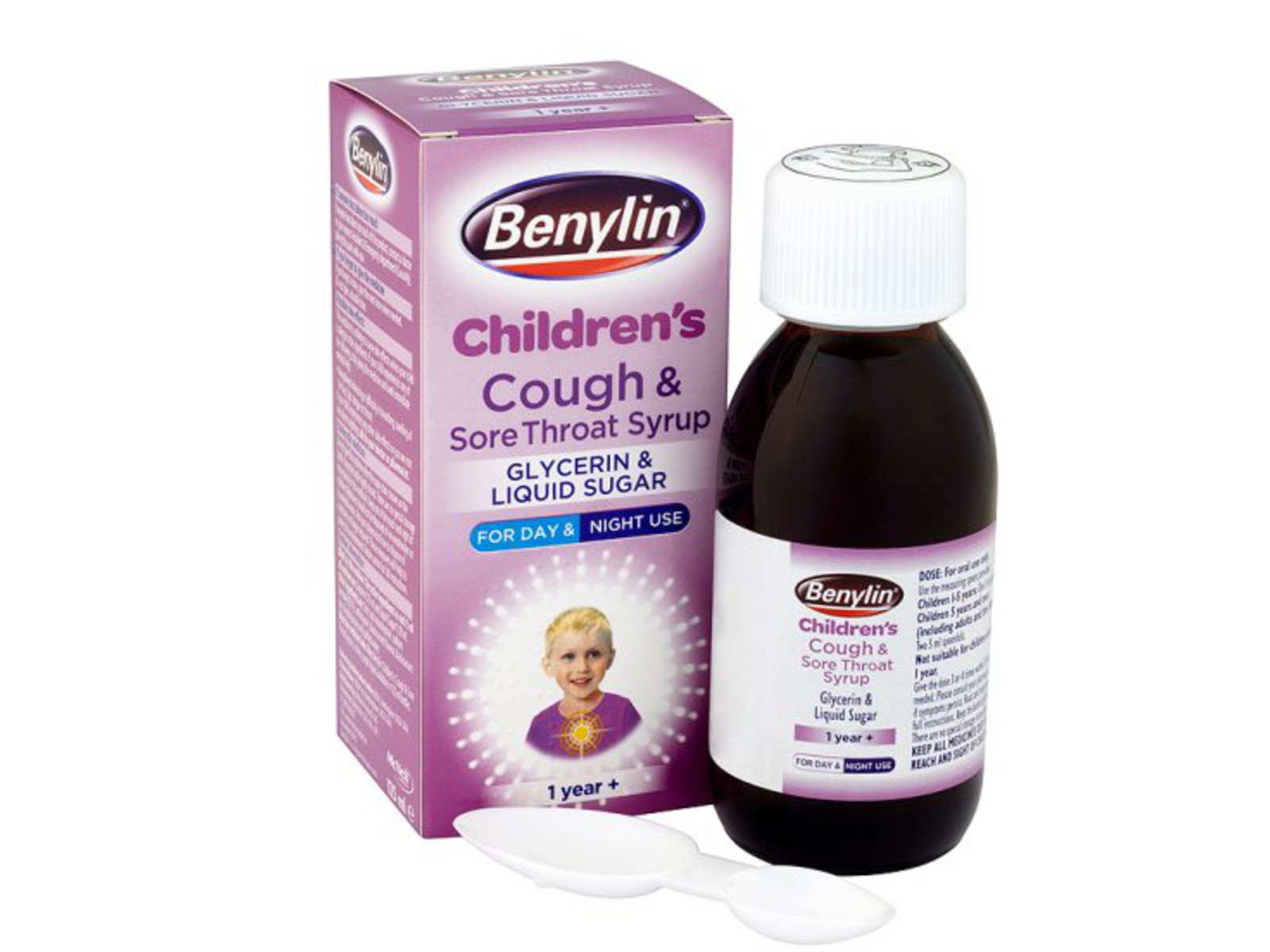 But do not give soda or orange juice, as these can hurt a throat that is sore from coughing.
But do not give soda or orange juice, as these can hurt a throat that is sore from coughing. - You should not give your child (especially a baby or toddler) OTC cough medicine without first checking with your doctor.
- If your child has asthma, make sure you have an asthma action plan from your doctor. The plan should help you choose the right asthma medicines to give.
- Cough drops are OK for older kids, but kids younger than 3 years old can choke on them. It's better to avoid cough drops unless your doctor says that they're safe for your child.
When Should I Call the Doctor?
Always call your doctor if your child is coughing and:
- has trouble breathing or is working hard to breathe
- is breathing faster than usual
- has a blue or dusky color to the lips, face, or tongue
- has a high fever (especially if your child is coughing but does NOT have a runny or stuffy nose)
- has any fever and is younger than 3 months old
- is younger than 3 months old and has been coughing for more than a few hours
- makes a "whooping" sound when breathing in after coughing
- is coughing up blood
- has stridor (a noisy or musical sound) when breathing in
- has wheezing when breathing out (unless your doctor already gave you an asthma action plan)
- is weak, cranky, or irritable
- is dehydrated; signs include dizziness, drowsiness, a dry or sticky mouth, sunken eyes, crying with little or no tears, or peeing less often (or having fewer wet diapers)
Night cough keeps you awake.
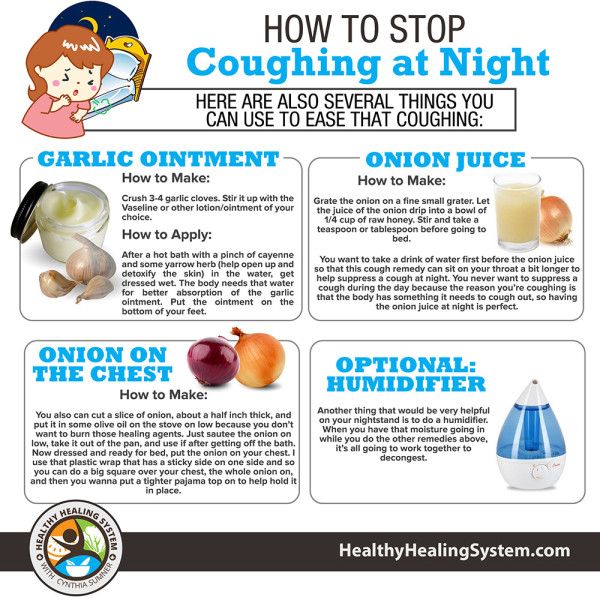 How to stop an attack?
How to stop an attack? Cough is an important helper in the fight against illness. This is a protective reflex that helps clear the airways of phlegm and germs. But nocturnal coughing attacks interfere with rest and exhaust the already weakened body.
Why does the cough get worse at night?
When a person is in a horizontal position, mucus accumulates in the nasopharynx, the airways are not cleared. With a runny nose, discharge from the nose and paranasal sinuses drain into the throat and cause a cough reflex, so coughing is tormenting in a dream, especially when we roll over from side to side, and in the morning when we get out of bed. nine0003
Dust and dry air can exacerbate coughing. This is especially true in apartments with central heating. Dry and hot air irritates the mucous membranes and provokes coughing fits. To alleviate your condition, regularly ventilate the bedroom and do wet cleaning. It will not be superfluous to buy a humidifier. But if you don’t have it, and you need to fight a cough right now, you can hang a damp towel on the battery or put a container of water next to the bed.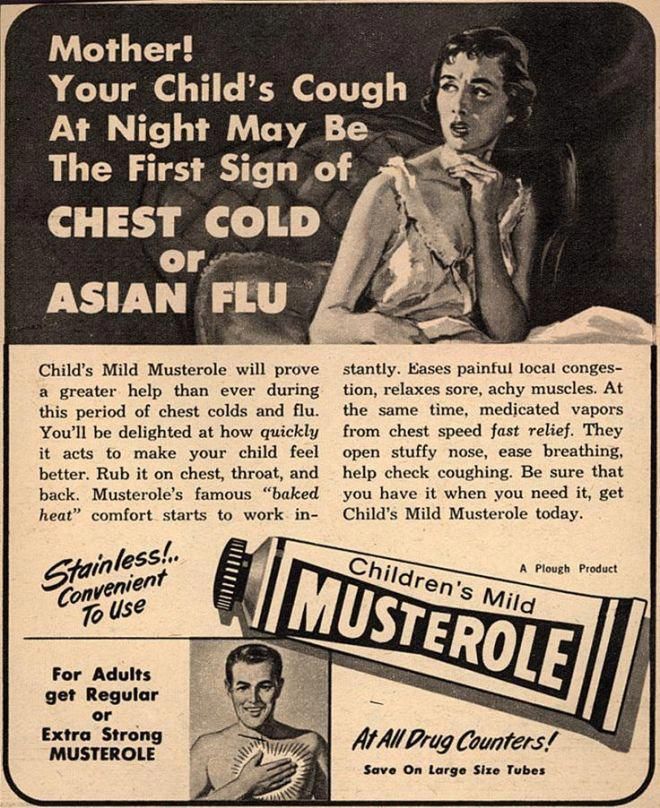
Dry and wet cough - is there a difference? nine0005
Yes. A wet cough associated with colds and flu is helpful in clearing the nasopharynx and airways. Phlegm protects the mucous membranes and prevents bacteria from entering the body.
A dry, throat-tearing cough, on the contrary, is quite dangerous for the body. With such a cough, sputum is not secreted, the bronchi are not cleared, and the nasopharynx dries up. A constant inflammatory process is maintained on the walls of the respiratory tract. A dry cough, unlike a wet cough, does not help to recover, but only exhausts and interferes with rest. To speed up the healing process, you need to try to translate a dry cough into a wet one. But this should be done under the supervision of a doctor. nine0003
Night cough in a child - is it dangerous?
No, unless the cough is a symptom of a serious illness (such as asthma or pneumonia). The most common cause of cough in children is a viral infection. Viruses infect the respiratory tract at different levels - from the nose to the bronchi, bronchioles and lungs.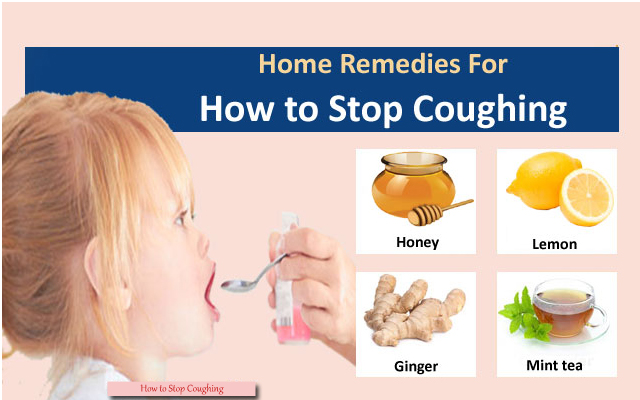 Sometimes the cough lasts for several weeks, because the child does not have time to recover from one infection and picks up another. About 10% of children continue to cough even after being treated with SARS. nine0003
Sometimes the cough lasts for several weeks, because the child does not have time to recover from one infection and picks up another. About 10% of children continue to cough even after being treated with SARS. nine0003
Some doctors are even suggesting a new term, "post-viral cough". Such long attacks scare parents, but most often they do not speak of serious pathologies.
But even if the disease is not dangerous or has completely disappeared, it is difficult for a child to endure sleepless nights, especially with a dry cough. Yes, and parents have a hard time if they don’t know how to help.
Important: if the child coughs frequently at night, this may be a sign of respiratory problems, allergies or whooping cough. Be sure to consult a doctor and do not treat the child yourself, so as not to worsen his condition. nine0028
What should I do if my child coughs and cannot sleep?
To quickly stop a night cough attack and help your child, you can:
- Place a high pillow under the back, turn the child from back to side to prevent a strong outflow of mucus swallowed and accumulated during the day.
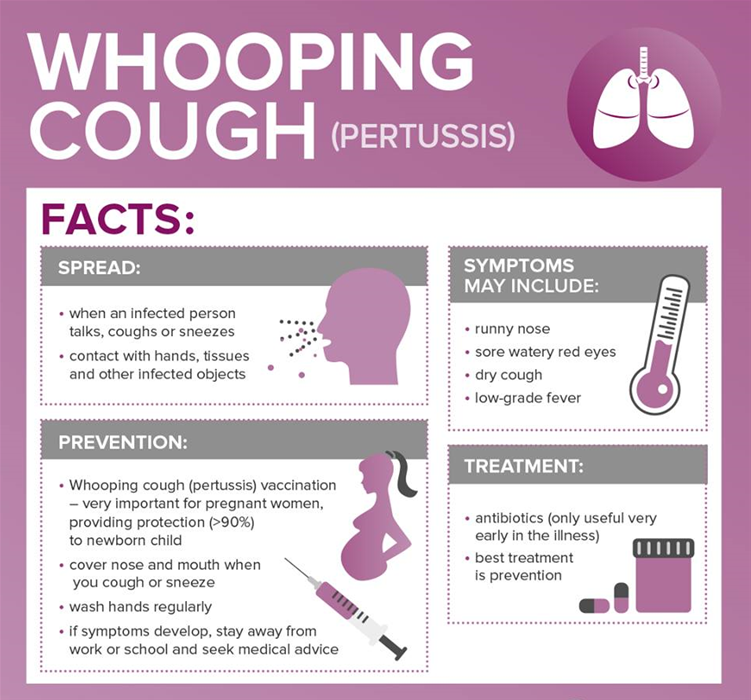
- If the child does not have allergies, a spoonful of honey will help - it envelops and soothes the mucous membranes of the throat.
- Give your child warm tea or water to relieve cough and soothe the airways. It is better not to drink carbonated drinks or citrus juices - they can additionally irritate the already inflamed mucous membranes. nine0036
How to stop a night cough attack in an adult?
Try to find a comfortable position. Place a high pillow under your back. Drink warm tea or water to soothe your throat. This is especially important for dry coughs - the liquid will help soothe the irritation.
If you find it difficult to breathe, ventilate the bedroom and try humidifying the air. If you don't have a humidifier, hang a couple of wet towels on the radiator. You can arrange a small session of steam therapy: go to the bathroom, close the door, turn on the hot water and wait a few minutes. nine0003
What drugs will help get rid of a cough?
It is ineffective and dangerous to treat cough only with the help of folk remedies.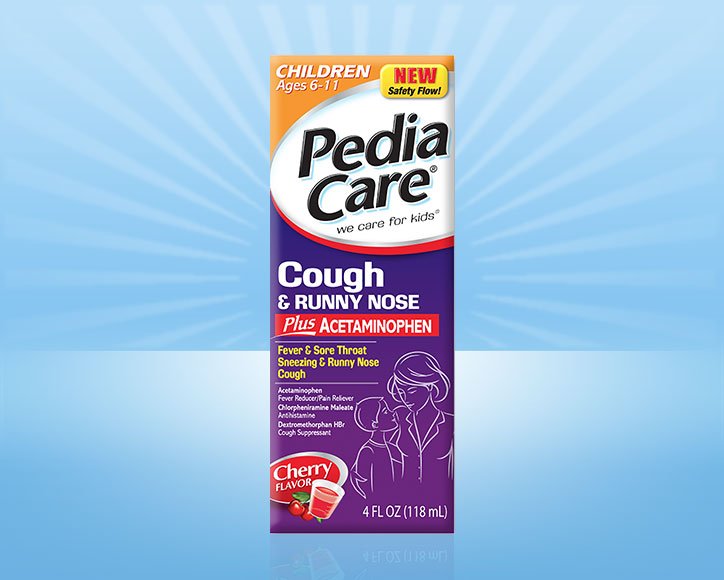 If it does not go away within a few days and nights, be sure to consult a doctor. It is important to remember that cough is a symptom of the disease, and not an independent disease, therefore, complex treatment is required.
If it does not go away within a few days and nights, be sure to consult a doctor. It is important to remember that cough is a symptom of the disease, and not an independent disease, therefore, complex treatment is required.
Wet cough is treated with mucolytic and expectorant drugs. They improve the excretion of sputum and mucus. But with a dry cough, such medicines do not help, but only increase the attacks, because the body will try to remove sputum that is not there. Antitussive drugs that inhibit or suppress the cough reflex help to get rid of a dry cough. nine0003
Mucolytic drugs, which include, for example, ambroxol, will help to cope with a wet cough in bronchitis or pneumonia. SANTO manufactures Ambro® solution, which can be taken orally or inhaled. Ambro® has an anti-inflammatory effect, as well as antioxidant properties, stimulates local immunity, increases the concentration of antibiotics in sputum and bronchial secretions.
How to get rid of a nocturnal cough | How to soothe a wet cough at night
Author, editor and medical expert
Petrashevich Anna Aleksandrovna
Views: 826 580
Last update: 11/23/2022
9000 Content
cough?
How to relieve a night cough and relieve an attack?
Cough in itself is an unpleasant phenomenon that prevents you from doing your usual activities and significantly worsens your general well-being.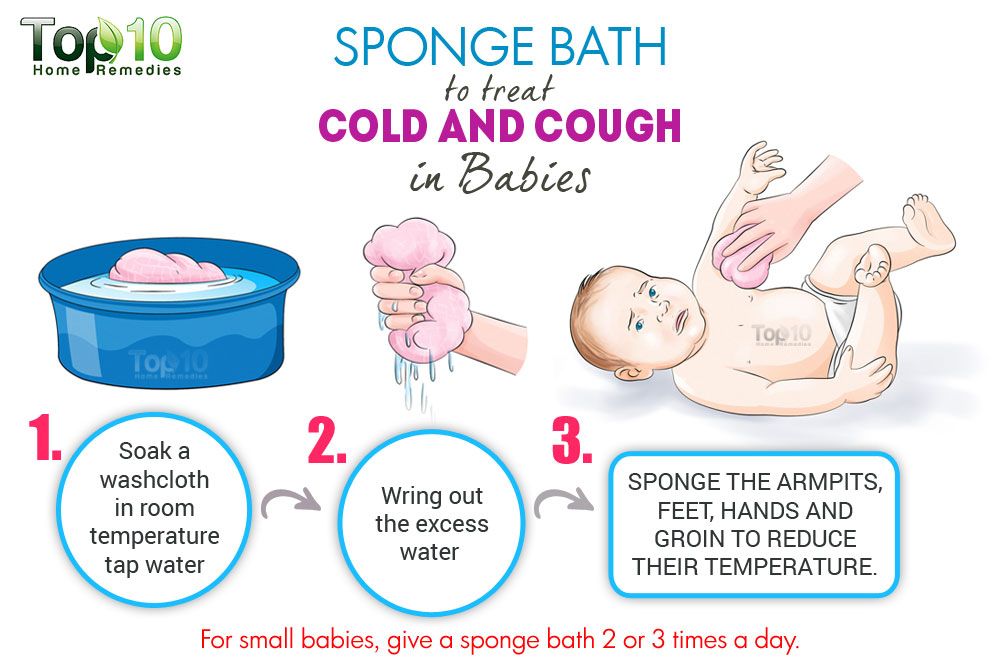 But when this condition does not stop day or night, the consequences can be much more serious than just feeling tired due to lack of sleep. nine0003
But when this condition does not stop day or night, the consequences can be much more serious than just feeling tired due to lack of sleep. nine0003
WHAT IS A NIGHT COUGH DANGEROUS?
Coughing attacks that occur at night can cause many temporary and even permanent health problems. To understand how harmful this condition is to the body, only one of the complications can be cited. Will you like memory impairment, decreased visual acuity, and impaired smell? It would seem that what does a night cough have in common with the loss of such important functions as the ability to clearly see the world around, remember information and smell? The relationship is more obvious than it seems at first glance: oxygen starvation and lack of rest in the main organ of the human body - the brain. In the dark, the brain must rest and restore the resources spent during the day. These processes are possible only in the process of deep sleep, into which the body is simply not able to immerse itself - it is constantly awakened by a cough.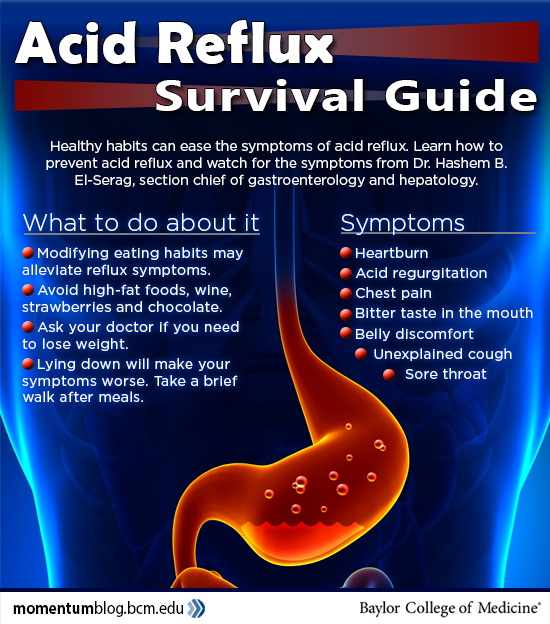 You will survive several of these nights without consequences, but a prolonged dry or wet night cough will sooner or later lead to chronic brain fatigue with subsequent dysfunction of its various areas. What to do if a night cough interferes with normal life? nine0003
You will survive several of these nights without consequences, but a prolonged dry or wet night cough will sooner or later lead to chronic brain fatigue with subsequent dysfunction of its various areas. What to do if a night cough interferes with normal life? nine0003
HOW TO ELIMINATE A NIGHT COUGH AND RELIEVE AN ATTACK?
Soothing a nocturnal cough in a child or adult is not an easy task, but it is quite doable. By following the recommendations listed below, you will significantly improve not only the quality of sleep, but also recovery from an illness accompanied by a cough.
-
Take care of full nasal breathing. A stuffy nose makes you breathe through your mouth, which leads to drying of the mucous membrane of the throat, itching and ... a coughing fit is repeated again and again, as the body tries to moisten the airways in this way, pushing the mucus out of the bronchi. nine0003
-
Lower the room temperature.
 If your comfortable bedroom temperature is 22 degrees, lower it to 20. The lower the temperature, the higher the humidity and the easier it is for you to breathe. But do not get carried away: an excessive decrease in degrees will have the opposite effect, and the cough will begin already due to spasms when inhaling cold air. Do not forget: during colds, bronchitis and other ailments, the mucous membranes are very sensitive - use your own well-being as an indicator, and not just a thermometer. nine0003
If your comfortable bedroom temperature is 22 degrees, lower it to 20. The lower the temperature, the higher the humidity and the easier it is for you to breathe. But do not get carried away: an excessive decrease in degrees will have the opposite effect, and the cough will begin already due to spasms when inhaling cold air. Do not forget: during colds, bronchitis and other ailments, the mucous membranes are very sensitive - use your own well-being as an indicator, and not just a thermometer. nine0003 -
Keep your feet warm. Feet and bronchi are far apart, but still within the same circulatory system. The warmer the legs, the greater the flow of blood to them and, as a result, its outflow from the upper respiratory tract. This will help calm the cough by relieving swelling of the mucous membranes and making it more efficient to clear mucus from the bronchi.
-
Drink plenty of water.
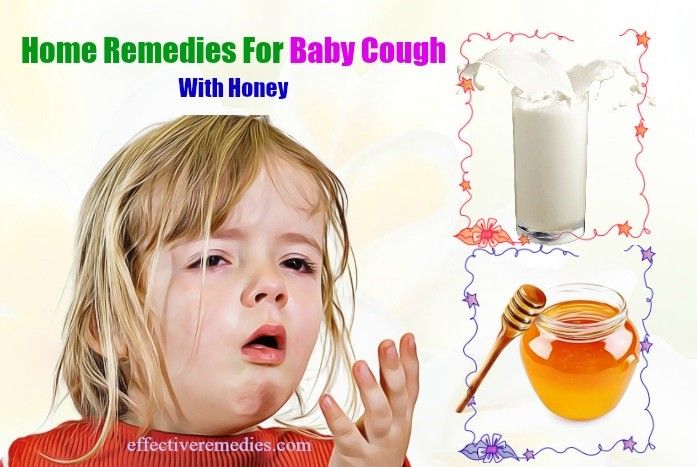 It is generally accepted that the consumption of a large amount of liquid makes sense only in viral diseases that are accompanied by an increase in body temperature. But with a wet night cough, drinking plenty of water helps no less: compotes and tea that you drink during the day reduce the viscosity of not only blood, but also other fluids, including mucus, which your bronchi try to push out during coughing fits. Make it easy for them: don't forget to drink more. nine0003
It is generally accepted that the consumption of a large amount of liquid makes sense only in viral diseases that are accompanied by an increase in body temperature. But with a wet night cough, drinking plenty of water helps no less: compotes and tea that you drink during the day reduce the viscosity of not only blood, but also other fluids, including mucus, which your bronchi try to push out during coughing fits. Make it easy for them: don't forget to drink more. nine0003 -
Do not eat at night. A full stomach is one of the night cough provocateurs even in a healthy person. Moreover, a late dinner can worsen the condition with bronchitis. Make sure that the last meal is no later than 2 hours before you take a horizontal position and the likelihood that a night cough will interfere with sleep will be much less.
You may also be interested in:
The syrup has a complex action: it removes phlegm, clears the bronchi and relieves inflammation.